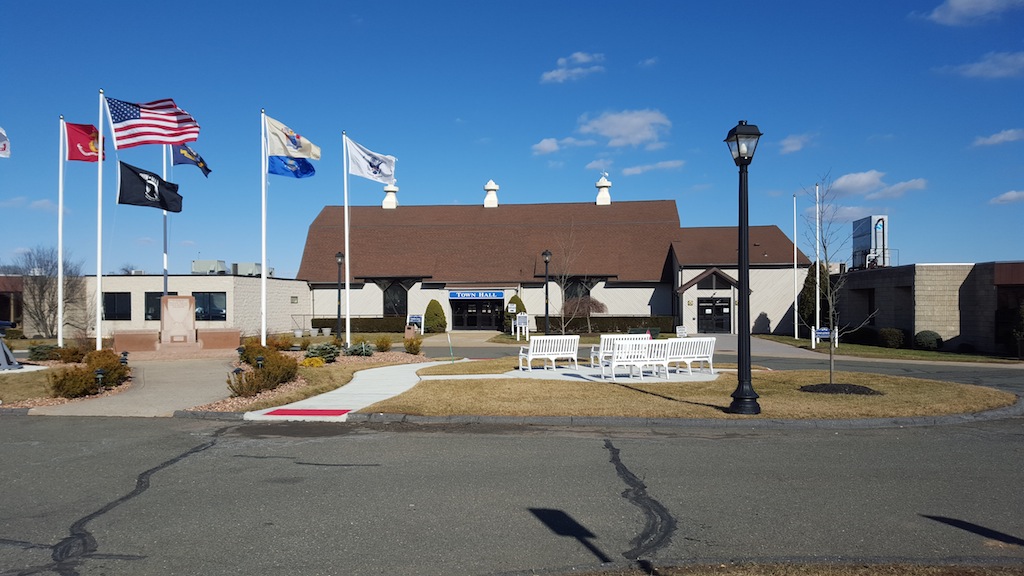MARLBORO – Nov. 9 marked eight months since Gov. Phil Murphy declared a state of emergency in New Jersey after the COVID-19 virus entered the state.
According to The New York Times, New Jersey had almost 250,000 confirmed cases of COVID-19 and about 16,000 deaths as of early November. On Nov. 4, state officials reported there were 2,443 new cases, which was an increase of about 600 from the previous day.
Marlboro Mayor Jonathan Hornik, like other mayors in New Jersey, has seen his community deal with the effects of the pandemic. In an interview this week, he discussed the ongoing health crisis.
“My primary concern has been and will continue to be the safety and well-being of the public and our essential personnel,” he said. “Throughout this crisis, we have strived to maintain a balance between health and safety while delivering critical services to the public. This becomes an even greater challenge as we enter the flu season and the cold winter months.”
When asked about the impact the pandemic has had on Marlboro’s businesses, Hornik said, “Our local business community continues to struggle under very difficult circumstances, especially our great restaurants. I credit the initiative and determination of our local business leaders in staying afloat and providing much needed services during this time.
“As I have said publicly many times, our local businesses are critical to the fabric of this community and our goal is to ensure Marlboro continues to offer the same wealth of retail, service and restaurant options to residents as was the case before the pandemic,” he said.
Hornik listed several efforts he said municipal officials have made to ease the burden on local businesses:
• Maintained open lines of communication with local restaurants and grocery stores; regularly updated, posted and disseminated hours of operation, delivery options, online ordering and special hours for at-risk populations to the public;
• Provided and publicized avenues for residents to support local businesses by purchasing gift cards, through the Economic Development Committee;
• Regularly communicated with business operators to keep them apprised of grants and programs available at the county, state and federal levels;
• Issued no-fee permits for fitness facilities to run outdoor classes at their location;
• Fast-tracked permits to allow restaurants to expand existing dining areas or to create new outdoor dining areas;
• Issued no-fee permits to gyms and fitness centers that were closed or subject to reduced capacity to operate on township recreation fields.
The pandemic has also had an impact on municipal operations and Hornik spoke about the impact on the 2020 and 2021 municipal budgets.
“Our budget process is a continuous, year-around undertaking. Through the budget process, we explore how to improve services and deliver them more efficiently, and regularly update projections and run multiple scenarios in order to stay ahead of the curve.
“In the short term, the township has experienced a significant decline in parking revenue, interest on investments and municipal court revenue, a projected shortfall in excess of $600,000 by year’s end,” he said.
“Within the Department of Recreation, simply put, our costs increased and revenues declined. The township has continued to offer programming during the pandemic to the extent possible under state executive orders.
“We went to significant lengths to open the swim club because our residents were in desperate need of an outlet during the summer. Doing so meant spending more in order to adhere to strict state operating guidelines, and raising less revenue due to state limits on attendance.
“Fortunately, at least for 2020, CARES Act funding has offset significant COVID 19-related operating costs and some necessary capital expenditures relative to the pandemic.
“Going into 2021, the township is monitoring fourth quarter tax collection levels. In this predominantly residential community, the housing market remains strong, which is a positive sign.
“Marlboro is not heavily reliant on state aid, but to the extent it receives any, this is a wildcard in the coming year’s budget picture. As has been widely reported, New Jersey is facing a serious financial crunch, severely aggravated by the pandemic,” the mayor said.
Hornik closed by stating what he has seen from the community during the pandemic.
“Over the past eight months, I have witnessed numerous examples of neighbors assisting neighbors, and essential employees overcoming the most difficult circumstances in order to report to work and serve the public.
“Since the pandemic began, township first responders have serviced more than 11,500 calls. Our residents and businesses have worked hard to adhere to the prescribed safety protocols and to bring our numbers down,” he said.
“We have been overwhelmed by the support from community groups and individual residents who have made generous donations of more than 50,000 pieces of personal protective equipment.
“I remain optimistic about this community and grateful, even in the midst of the most serious health and financial crisis of our lifetimes, knowing we will come out of this with our standing as a premier destination for families and businesses fully intact,” Hornik said.

